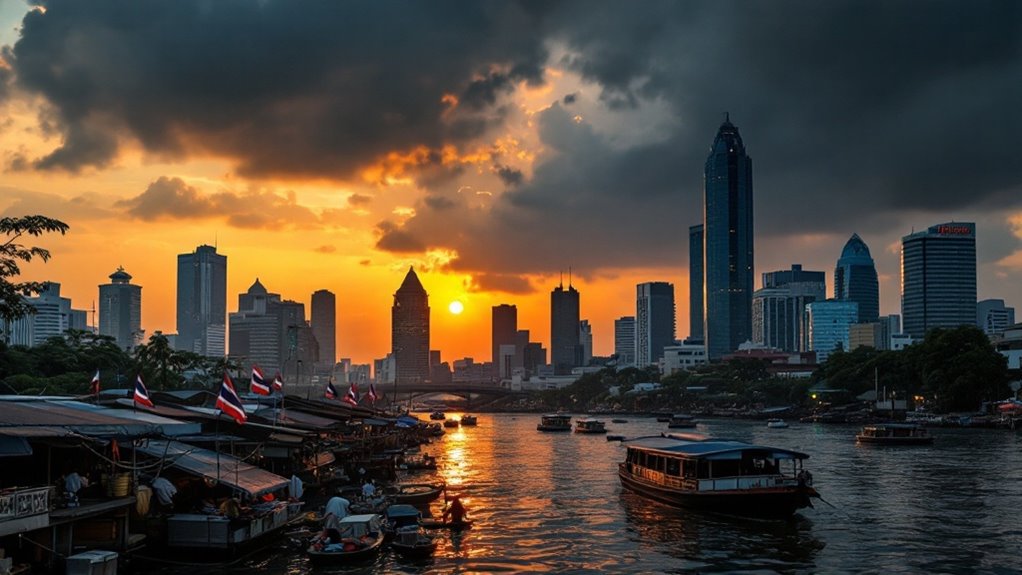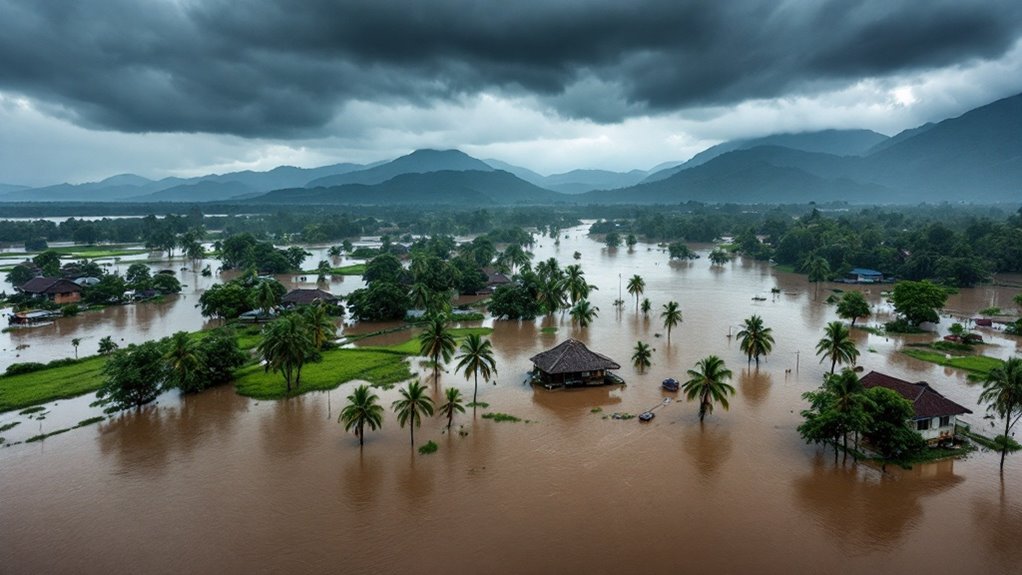Thai business leaders warn that political instability is endangering Thailand’s fragile economic outlook, with reduced investor confidence, slowing domestic growth, and vague government policies cited as major risks. The economy, reliant on sectors like tourism and export-oriented industries, faces added pressure from ongoing global trade tensions and high household debt. Large-scale infrastructure projects have been prioritized to support growth, yet persistent trade deficits and political uncertainty continue to challenge recovery efforts. Further insight clarifies the complex intersecting factors at play.
Uncertainty continues to shape Thailand’s economic outlook, as business leaders across the country warn of mounting threats to growth and stability. The Thai economy is facing significant risks from ongoing global economic slowdowns and unresolved trade tensions. Volatile currency values have created additional complications for both trade and investment, complicating decision-making for companies with international exposure.
Domestic economic growth has remained slower than anticipated, leading to concerns over reduced investor confidence and the broader implications for capital inflows and long-term economic recovery. Trade conflicts involving major economies, particularly the United States, have placed additional pressure on Thailand’s export sector. Export-oriented industries, such as electronics and auto parts, are feeling the impact from shifting trade policies and intensified competition from other emerging economies. Business leaders have highlighted that political instability is increasingly undermining investor confidence and delaying both domestic and foreign investment decisions. The aging population is another major structural challenge that threatens the long-term productivity and competitiveness of the Thai workforce.
Slower-than-expected growth and global trade tensions are dampening investor confidence and straining Thailand’s crucial export industries.
Meanwhile, high levels of household debt limit the ability of consumers to spend, further dampening prospects for robust economic growth. Business leaders note that these internal and external pressures are creating a challenging environment for both established firms and new entrants.
At the political level, instability continues to undermine investor confidence, which is regarded as crucial for fueling economic recovery. The implementation of socially sensitive policies, if conducted without adequate public support, has the potential to provoke political backlash and create further uncertainty.
Business communities have expressed concerns about the lack of clarity in economic policy, which can exacerbate instability and slow decision-making. Prudent fiscal measures are considered essential to avoid long-term risks, while public perception of government actions plays a substantial role in shaping economic expectations.
Despite these risks, Thailand’s government is placing emphasis on large-scale infrastructure projects, such as dual-track railways and high-speed trains, to stimulate growth and encourage investment in regional areas. These projects are intended to create jobs, boost the real estate sector outside Bangkok, and attract further investment.
Projections for 2025 suggest GDP growth between 2.2% and 2.9%, with private consumption and tourism expected to remain key drivers. However, external threats, including the impact of US and Chinese economic policies and persistent trade deficits, continue to challenge Thailand’s fragile economic trajectory.









